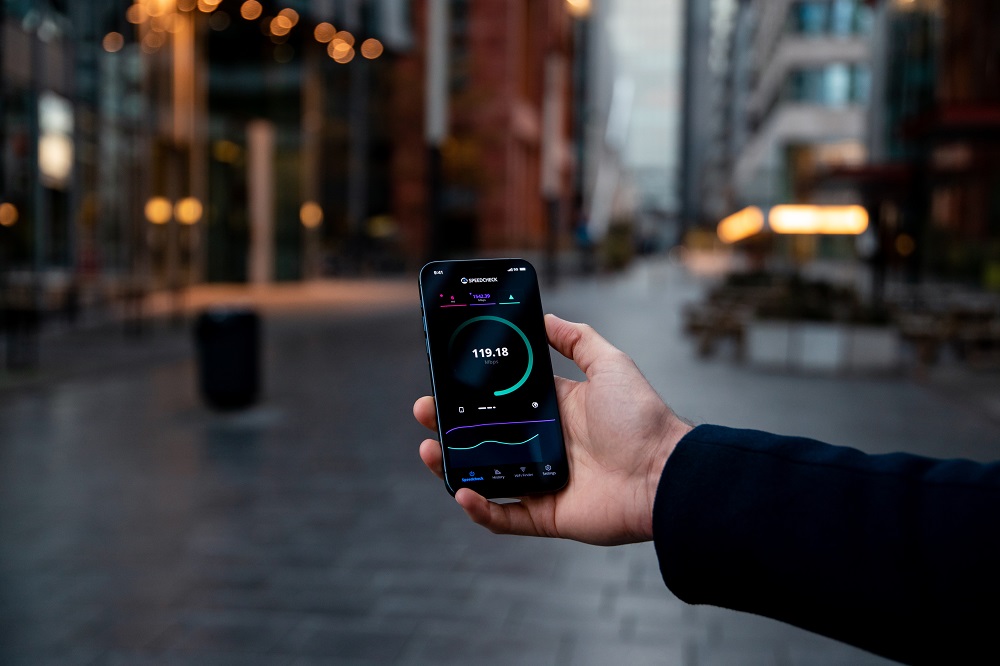Big data is often employed in applications related to banking, healthcare analytics, or manufacturing. These are some massive industries that are employing business intelligence software to authenticate their operations. However, the usage of big data analytics is slowly advancing to other fields. While data science is a relatively new field, more and more industries are jumping aboard the data spree.
Big data is the huge amount of data generated from various sources. It can be structured, semi-structured, or unstructured. This massive amount of data is beyond the capabilities of traditional management systems. Big data enables businesses to extract meaningful insights that can assist in improving their internal operations. Big data analytics is also instrumental in training machine learning models, predictive modeling, and other analytics applications.
Real-time analytics assists in capturing and acting on the information. This involves streaming data that is collected from cameras or sensors, sales transactions, visitors to the website, GPS, devices that operate the business, or social media audience.
.jpg)
This real-time streaming data is critically important in many industries. Financial industries use real-time analysis to spot fraud and halt transactions before they can take place. This had protected millions that could have been stolen. With real-time data analytics, financial organizations can track, cancel, and rectify the damage that could only be detected only when a complaint is received. Netflix also uses this form of data to make on-the-fly decisions about what its subscribers are viewing or want to watch next. Facebook uses real-time analytics to identify and remove dangerous content, including fake news and abusive posting, from the 4.75 billion posts that are made each day. All this could not have been achieved without real-time data and analytics.
However, real-time analytics is often perceived as an advanced use case as it involves fast-moving data that is often unstructured. By incorporating procedures like data validation and cleansing, businesses can process more data to discover insights.
Read more: Data-Centricity: The New Roadmap to Driving Enterprises in a Changing World
Big Data Analytics Transforming Industries
The best models of big data analytics can be found in the public and private sectors, from targeted advertising and education to massive industries, including healthcare, manufacturing, banking, hospitality, and entertainment.
What is the motive behind incorporating big data?
Bustling industries are embracing the power of digital data, including it in their management reporting practice and predicting customer behaviors to reap the rewards of increased efficiency and a significant boost in profits. While some industries are slowly adopting these new innovations, others are emerging as the front-runners that are leading the pack.
Big data analytics is delivering benefits in multiple industries. Here, we have curated a list of industries that are enhancing their daily processes and operations with real-time data analytics.

Top Big Data Analytics Applications in Real Life
-
Big Data in Marketing
With the evolution of the internet and technologies like big data and analytics, the field of marketing is undergoing a digital transformation known as Digital Marketing. Today, marketing agencies employ data analytics to collect amounts of data to gain insights into millions of their customers in a fraction of seconds. Business Analysts analyze the data to help marketers run ad campaigns to increase their click-through rates and improve user engagement with their products. E-commerce platforms collect data on the purchase made by millions of their customers to analyze their purchase patterns and payment methods. This enables them to design novel offers and advertisements to attract more customers.
-
Big Data in Banking & Management
The amount of data generated in the banking sector is skyrocketing. This data is estimated to grow by 700 percent by the end of the next year. With big data analysis, banking officials can easily study, and analysis the data and detect any illegal activities being carried out like:
-
Misuse of credit or debit cards
-
Credit hazard treatment
-
Transaction clarity
-
Customer statistics alteration
-
Money laundering
-
Risk mitigation
Today, many anti-money laundering software employ data analytics to detect suspicious transactions and diagnose customer data.
Read more: Driving Sustainable Innovations: AI for ESG Data Challenges

-
Big Data in Healthcare
While medicine has come a long way, today, they are incorporating innovative tech and are ever improving. Many healthcare organizations are struggling with the cost pressures of modern healthcare rising due to the use of sophisticated machinery as well as medicine. But with data analytics applications, healthcare facilities can now track the treatment of patients and patient flow along with the equipment being used in hospitals. If data analytics becomes an integral part of healthcare, 1% efficiency gain can be achieved, which can translate into more than $63 billion in healthcare services.
-
Big Data in Manufacturing
Predictive manufacturing helps to increase efficiency by manufacturing more goods, thereby minimizing the downtime of machines. Sophisticated forecasting tools track an organized process to explore valuable insights into the collected data. Predictive manufacturing offers near-zero downtime and transparency. It requires an enormous amount of data and advanced prediction tools to systematically process the unstructured data into useful information. By incorporating big data analytics applications into their operations, manufacturing industries can:
-
Track product quality and defects
-
Plan supply of material
-
Track manufacturing process defects
-
Forecast output
-
Increase energy efficiency
-
Test and simulation of new manufacturing strategies
-
Support mass customization

-
Big Data in Transportation Domain
With the rise of big data, it has been incorporated in numerous ways to make transportation more efficient. Big data has enabled transportation companies to efficiently manage and incorporate their operations in the following areas:
Route planning: With big data, the transportation industry can understand and estimate users’ requirements on different routes and multiple modes of transportation. It is being incorporated for route planning to reduce the wait time.
Congestion management and control: Big data provides a real-time estimation of congestion and traffic patterns to locate the least traffic-prone routes to reach the destination.
Traffic flow: With the real-time processing of big data and predictive analysis, transportation companies can identify accident-prone areas and reduce accidents, thereby increasing the safety level of traffic.
-
Big Data and Internet of Things (IoT)
IoT (Internet of Things) devices yield continuous data and send them to the server on an everyday basis. This collected data is mined to provide the interconnectivity of devices. The IoT mapping technique can be used by multiple companies to increase their competence. IoT is also finding applications in smart irrigation systems, traffic management systems along with crowd management. Manufacturing companies are installing IoT sensors into machines to accumulate operational data. By analyzing the collected data, they can predict how long the machine can be operated without any problem or when it will require repairing. This enables them to save on the cost of replacing the whole machine. IoT is finding its significance in the healthcare industry as well. With big data tools, data concerning patient experience is collected and used by doctors to provide better treatment. IoT sensors are placed near patients and newborn babies to keep track of their health conditions like heart bit rate, blood pressure, etc.
Read more: The Science of Music: How Big Data Is Transforming the Music Industry?

Final Thoughts
Big data analytics is a process of examining large data sets that contain a variety of data types to uncover hidden patterns, market trends, and customer preferences. These analytical findings can lead businesses to employ more effective marketing, generate new revenue opportunities, offer customer service, and enhance their operational efficiency.
The primary goal of big data is to help organizations make informed business decisions. Industry influencers, academicians, and stakeholders are shifting to incorporate big data into their operations as it is becoming a game-changer in all modern industries. Data breaches have made enhanced security a critical goal for organizations, leading them on the path to incorporating big data analytics applications. As data analytics continues to permeate our everyday activities, there has been a significant shift of focus to finding real value in its use.
But where do you stand when it comes to big data?
Today the significance of big data lies in how an organization is operating on the collected data and not on how much data is being collected. By employing data analytics solutions, businesses can analyze heaps of data easily and efficiently to unearth actionable insights. These big data solutions are empowering multiple industry verticals to benefit from the collected data.
With a presence in New York, San Francisco, Austin, Seattle, Toronto, London, Zurich, Pune, Bengaluru, and Hyderabad, SG Analytics, a pioneer in Research and Analytics, offers tailor-made services to enterprises worldwide.
A leader in Data Analytics, SG Analytics focuses on leveraging data management & analytics and data science to help businesses discover new insights and build strategies for business growth. Contact us today if you are looking to make critical data-driven decisions to prompt accelerated growth and breakthrough performance.









